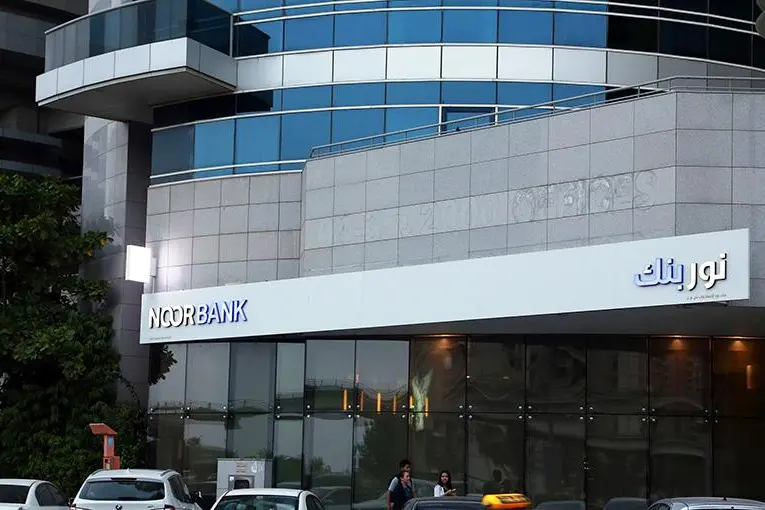PHOTO
DUBAI - Dubai-based lender Noor Bank is to move away from unsecured lending to small and medium-sized enterprises, its chief executive told Reuters, after a rise in bad debts within this sector.
The shift is part of a turnaround plan Chief Executive John Iossifidis is mapping out since joining the bank in April to bolster profits.
"Unsecured lending to SMEs is not something we will do," Iossifidis said in an interview on Tuesday. "The whole banking sector was doing unsecured lending to the SMEs and that is why we (the sector) got into the problems."
"We are not turning our back on that sector, but it's certainly not going to be the unfettered lending that was happening two years ago in the banking sector."
Banking profits in the Gulf have generally fallen in the past two years in response to more subdued economic growth and an increase in bad loans, partly reflecting the impact of lower oil prices.
In the United Arab Emirates, a significant chunk of loans to small businesses have for years been on an unsecured basis, but this business began to run into difficulties in the second half of 2015 after a wave of bad debts linked to the sluggish economy and a strong dollar.
Noor's impairment charges jumped 122 percent in the three months to June 30 from the same period of last year, according to the bank's latest financial results.
Other local banks have already taken steps to cut their exposure to the SME sector. United Arab Bank told Reuters in January 2016 it had begun to wind down its exposure to small businesses.
Noor, 87.8 percent owned by Dubai's government, laid off several dozen employees earlier this year, sources told Reuters in August.
The bank, the UAE's 12th largest by assets, has no current plans for further job cuts, but would continue to look at ways to reduce costs, Iossifidis said.
It aimed to lower the bank's cost to income ratio from 40 percent last year to below 35 percent, he said.
Other changes involve diversifying Noor's corporate loan book.
"In terms of sectors, we are mainly government-related entities and real estate-led, so that leaves virtually everything else," he said.
In its retail business, Noor aims to shift its focus more towards affluent consumer clients, he said, adding that it had raised the minimum salary threshold for customers.
The bank had a 7 percent market share in the UAE mortgage market, giving it an advantage in capturing greater market share in the affluent market, he said.
"By definition, if you have a home, you are affluent."
Based on economic forecasts, the UAE's banking sector could grow more than 6 percent in 2018, with Noor aiming to grow "a little faster than the banking sector," Iossifidis said.
The bank's profit in the three months to the end of June reached 79.7 million dirhams ($21.7 million), down 76.9 percent from the same period of last year.
($1 = 3.6729 UAE dirham)
(Editing by Jane Merriman) ((Tom.Arnold@thomsonreuters.com; +97144536265; Reuters Messaging: tom.arnold.thomsonreuters.com@reuters.net))
The shift is part of a turnaround plan Chief Executive John Iossifidis is mapping out since joining the bank in April to bolster profits.
"Unsecured lending to SMEs is not something we will do," Iossifidis said in an interview on Tuesday. "The whole banking sector was doing unsecured lending to the SMEs and that is why we (the sector) got into the problems."
"We are not turning our back on that sector, but it's certainly not going to be the unfettered lending that was happening two years ago in the banking sector."
Banking profits in the Gulf have generally fallen in the past two years in response to more subdued economic growth and an increase in bad loans, partly reflecting the impact of lower oil prices.
In the United Arab Emirates, a significant chunk of loans to small businesses have for years been on an unsecured basis, but this business began to run into difficulties in the second half of 2015 after a wave of bad debts linked to the sluggish economy and a strong dollar.
Noor's impairment charges jumped 122 percent in the three months to June 30 from the same period of last year, according to the bank's latest financial results.
Other local banks have already taken steps to cut their exposure to the SME sector. United Arab Bank told Reuters in January 2016 it had begun to wind down its exposure to small businesses.
Noor, 87.8 percent owned by Dubai's government, laid off several dozen employees earlier this year, sources told Reuters in August.
The bank, the UAE's 12th largest by assets, has no current plans for further job cuts, but would continue to look at ways to reduce costs, Iossifidis said.
It aimed to lower the bank's cost to income ratio from 40 percent last year to below 35 percent, he said.
Other changes involve diversifying Noor's corporate loan book.
"In terms of sectors, we are mainly government-related entities and real estate-led, so that leaves virtually everything else," he said.
In its retail business, Noor aims to shift its focus more towards affluent consumer clients, he said, adding that it had raised the minimum salary threshold for customers.
The bank had a 7 percent market share in the UAE mortgage market, giving it an advantage in capturing greater market share in the affluent market, he said.
"By definition, if you have a home, you are affluent."
Based on economic forecasts, the UAE's banking sector could grow more than 6 percent in 2018, with Noor aiming to grow "a little faster than the banking sector," Iossifidis said.
The bank's profit in the three months to the end of June reached 79.7 million dirhams ($21.7 million), down 76.9 percent from the same period of last year.
($1 = 3.6729 UAE dirham)
(Editing by Jane Merriman) ((Tom.Arnold@thomsonreuters.com; +97144536265; Reuters Messaging: tom.arnold.thomsonreuters.com@reuters.net))





















